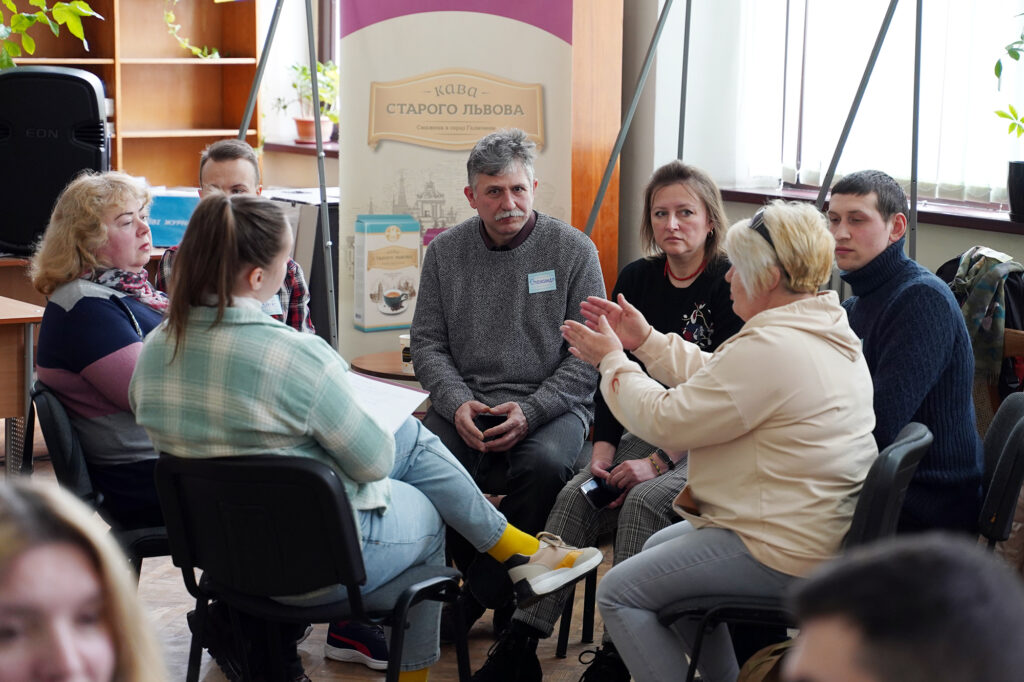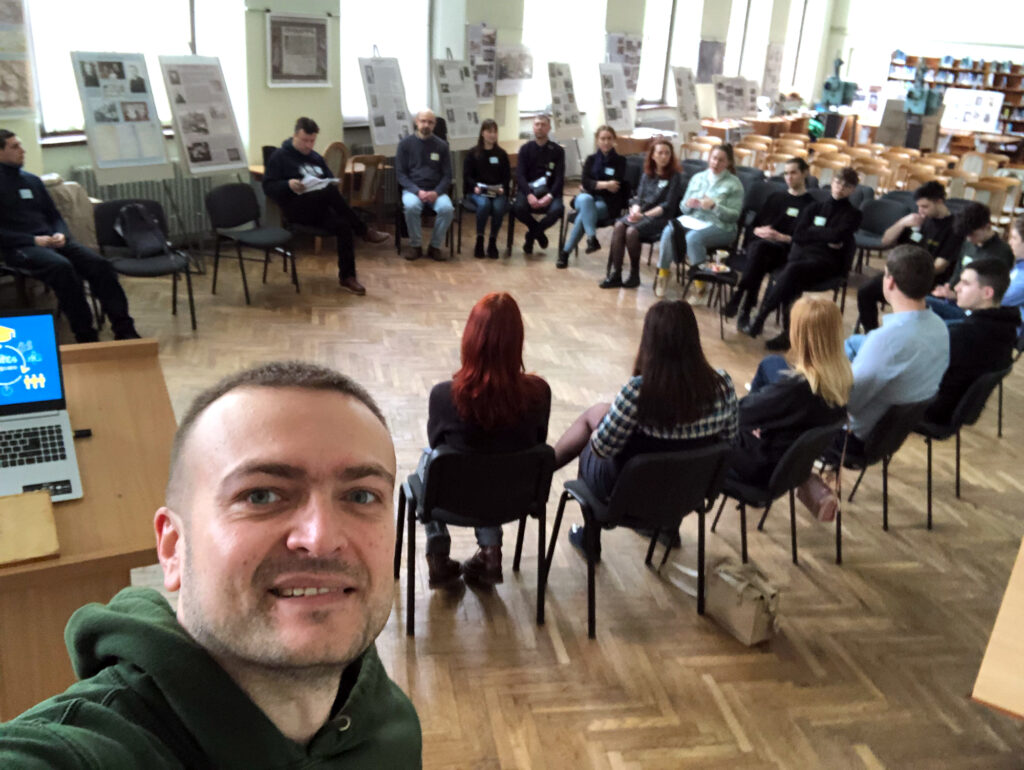On March 30, 2023, the World Café was held at the Scientific and Technical Library of Lviv Polytechnic as part of the international project Baltics4UA.
The main idea of the World Café is to discuss the role of universities, students and the
academic community in overcoming the humanitarian crisis.
The aim of the project is to develop, implement and evaluate the impact of university-led
civic actions in the context of the new humanitarian crisis in Ukraine, as well as to develop
guidelines for the Baltic States on how to help Ukrainian refugees.
The event organized communication between student volunteers, internally displaced
persons and university representatives.
Participants were divided into teams, with which
different speakers worked in turn, each with a different topic. Accordingly, each group
gave answers to the questions, as well as their comments and advice.


Topics discussed:
The role of the student in responding to the crisis (moderator – Anastasia
Vakarchuk, Head of the Students’ and Postgraduates’ Trade Union of Lviv
Polytechnic National University);
University as a center of psychological and legal support (moderator – Iryna
Sniadanko, Head of the Theoretical and Practical Psychology Department);
Universities as a means of engaging the public in positive action (moderator – Anna
Shilling, Associate Professor of Social Communications and Information Activities
Department);
The role of research: which topics are most relevant and how to use the potential
(moderator – Pavlo Zhezhnych, Vice-Rector of Lviv Polytechnic, project coordinator);
The Universities’ Contribution to the Formation of Crisis Response Policy
(moderator – Oleksandr Berezko, Associate Professor of the Department of Social
Communications and Information Activity).


In the course of the discussion, the participants came up with answers to the following
questions:
- How to involve students in crisis response?
- What can we learn from students?
- What experience can be shared?
- What is the role of scientists during a crisis in general?
- What areas are most needed during the war?
- How can science prepare society for new challenges?
- In what direction should policy at the local, national and international levels move to effectively deal with crises?
- What should be the role of universities in promoting better decision-making?


The following ideas were developed during the discussion:
- We need to set ourselves concrete goals, not abstract ones.
- It is necessary to stimulate the work of volunteers at the social level, to provide them with psychological and legal assistance.
- Volunteering gives impetus to the formation of a new area of social work.
- The work of volunteers needs to be transformed into a social service, and there is a need to create centers for helping war victims in every town.
- The university should become a base for collecting information and analyzing it.
- There is a need for legislative rules for accepting refugees.
- The main task is to activate society.
- The university should adapt its educational programs to modern realities and introduce training for students to communicate with war victims.

“As a result of the brainstorming session, the participants worked on many areas, some of
which already have concrete solutions that can be implemented. As for others, it is the
beginning of a discussion. The workshop is the beginning of a discussion that will be
continued later,” explained Oleksandr Berezko.
